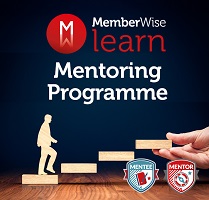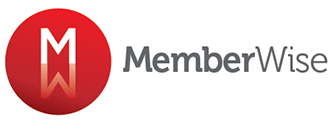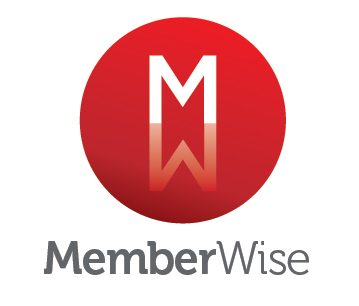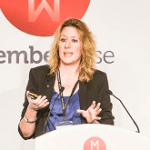- Mentor: Ian Oxley, Head of Supporter Recruitment, The National Trust
- Mentee: Sam Fletcher, Head of Membership, Equity
In 2020 we launched the MemberWise Mentoring Scheme. Never before had this been available for membership and association professionals at all levels and career stages.
The Network took the bold step of creating an online self-serving mentoring programme (using the Higher Logic online community platform) with the core purpose of providing a structured peer-led professional development activity.
Our aim was to encourage mentors and mentees to register, search and match-up independently (via the Network) whist providing a clear structure and framework (time scale, templates and associated best practice advice) to facilitate a solid mentoring programme. After a couple of years of offering the programme to the Network, we have delivered the equivalent of 44 years’ worth of successful mentoring, matched 44 mentors and mentees and are enabling 76 prospective mentees to connect with 62 volunteer mentors.
We wanted to take the opportunity to talk to some of those mentoring pairs and get them to explain why they signed up and what they’ve got from the experience. They also share some tips for those that have yet to be involved.
Ian, why did you want to be a mentor?
I’ve had great coaches and mentors throughout my career and benefitted hugely from it. In addition, as part of my personal development, my employer has invested in my coaching skills, so I act as a coach/mentor within the National Trust. So, it’s a combination of being a big believer in the importance and benefits that can come from a strong mentor / mentee relationship (and I do see it as a two-way street), and a desire to give something back given the investment that has been made in me.
Sam, why did you want to get a mentor?
I wanted a mentor because I love learning and developing. Secondly, I was leading on a key piece of membership work which was one of my organisation’s first projects using matrix team working. As this was new, I thought it would be good to get a mentor from outside my organisation that could help guide me and had experience of leading membership projects across an organisation.
How did you start your initial approach/search?
Sam > I had a look through who was available as a mentor and their biography/offer. I was aware of Ian’s role/work from his previous MemberWise talks (Ian has spoken at a number of MemberWise Conferences and Webcasts) so I knew he had exactly the experience I was looking for.
Ian > I tried to make it really clear what I could offer a potential mentee in my profile as within membership we are all too aware that there are so many sub-specialisms I felt it critical to provide a targeted view of the help, support and insight I could provide.
How did you decide how you would ‘meet’ e.g. face to face, telephone, zoom?
Ian> At the time, it felt as though Zoom was our only option, given the pandemic, lock downs, restrictions etc. But I don’t personally think that has been a hinderance.
Sam > Due to Covid and the geographic difference face to face meetings were not an option.
How has your mentoring relationship changed over time?
Ian > I think as you get to know someone better you can get deeper into it, and although it’s critically important for there to be high levels of mutual trust from the start, I think this does build as you get to know each other. You also learn what people respond well to, and perhaps what they don’t.
Sam > When I first started, I was looking for support and guidance on matrix management for a project, this then let to stakeholder management. During the pandemic, this led to mentoring around leadership in challenging times particularly with a customer facing team that were the key income generator for the organisation. Halfway through our mentoring relationship, I took a new role for a different organisation and Ian stayed as my mentor to see me through this change, which came full circle as we returned to a lot of what we covered at the beginning with stakeholder management.
What have you got from the mentoring relationship?
Ian > I’ve got to know Sam. I’ve really enjoyed it. I’ve found it fulfilling and a learning experience, which I always feel is important. I also feel I’ve seen Sam go on something of a journey, and flourish over the period we’ve been working together.
Sam > In busy and fast-pace times of change this really forced me to take time out to reflect and develop. Ian gave me several tools and useful knowledge like stakeholder management and how to manage myself to be a good leader that I kept and shared with several others. There was also great comfort knowing someone else had taken a similar journey at times, particularly with changing jobs and the advice, words of wisdom given were so helpful. For example, Ian described it as “like emptying a saving account and having no credit in the bank but to remind yourself over time you will replace those savings and build up credit again and it just takes time”. It is so true, but I needed to hear this in the first month of my new role. I felt Ian was invested in helping me develop. I really enjoyed the homework he set me and often unlocked what had been puzzling me and I could just see what I needed to do, like magic.
Why would you encourage others to get or be a mentor?
Ian > Because it can be hugely rewarding and beneficial. I ask all of my direct reports at the National Trust to have at least one mentor as part of their Personal Development Plan because of how committed I am to the benefits it can bring. A fresh and different perspective so often proves invaluable. And as a mentor, as well as giving something back, it can be a great opportunity to learn more about yourself and others.
Sam > I learnt so much from having a mentor that I would encourage others to get one too. It is helpful to discuss challenges with someone who’s had similar experience but is not within your organisation.
Do you have any tips or advice in how to get the most from the mentoring relationship from your point of view as a mentee/mentor?
Ian > Have an initial ‘get to know you’ session to ensure there is rapport and the foundations of mutual trust and respect. Ask the mentee what they are looking to get from the relationship and be honest about your ability to meet those requirements. If you can’t meet the need, then be willing to say so. And have a contracting conversation: how frequently, for how long etc. Set out some areas of common understanding so both parties are clear what to expect. Be generous, be open. Above all else listen. Listening and questioning are where you add value, not by offering advice.
Sam > To make sure there is confidentiality, and it is a safe space so you can be open and honest. Also keep to the time allocated and appreciate the time that your mentor is giving you from their busy diary.
The MemberWise Mentoring Programme is a free resource provided via the MemberWise Network enabled by Higher Logic. All practicing membership and association professional (at any level or career stage) is eligible to participate. Find out more information about our mentoring scheme here: https://memberwise.org.uk/mentoring/ or sign up directly via MemberWise Connect: https://connect.memberwise.org.uk/mentoring









Leave A Comment